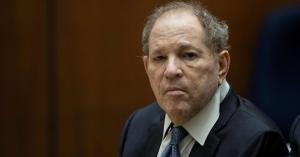Former Minneapolis Police officer Derek Chauvin was charged with third-degree murder and manslaughter for the killing of George Floyd, and many protesters are not satisfied. Based on the video evidence, many believe that Chauvin and the other officers involved should be charged with first or second-degree murder instead. Legal experts are helping the public to better understand the differences between the charges as the nation-wide demonstrations continue.
Chauvin and his fellow officers were detaining Floyd on suspicion of using a counterfeit $20 bill on Monday, May 25. As the viral video from the scene shows, Chauvin knelt with his knee on Floyd’s neck for eight minutes and 46 seconds, while other officers restrained his body at other points. Based on the video, many people — including Floyd’s family, according to a report by CNN — have been calling on prosecutors to revise Chauvin’s charge to a more severe offense. However, others argue that the third-degree murder charge makes it more likely that Chauvin will be convicted, serving at least some justice.
Videos by PopCulture.com
In most states, there are only two degrees of murder charges, but Minnesota is one of the few with a third-degree murder category. It is defined as causing the death of a person “by perpetrating an act eminently dangerous to others and evincing a depraved mind.” Third-degree murder means that the killer did not have regard for the victim’s life but did not have intent to kill them either.
Some have argued that prosecutors wanted to avoid the burden of proving that Chauvin specifically wanted to kill Floyd. However, the video shows Floyd repeatedly communicating that he can’t breathe, so advocates feel there should be a strong case for intent. To some, this is indicative of the very reason the Black Live Matter movement exists — that a jury would be more willing to believe that Chauvin killed Floyd by mistake than they would be to take Floyd’s pleas for breath seriously.
In Minnesota, second-degree murder is the cause of death without intent while committing another felony crime. To achieve this conviction, CNN legal analyst Joey Jackson said that prosecutors would have to prove Chauvin had “depraved indifference.”
“That means you disregarded the risk and did something that was so dangerous that you knew death could potentially occur,” Jackson explained. There is similar criteria for the manslaughter charge, he said, with prosecutors needing to convince the jury that Chauvin “disregarded the risk.”
Assuming Chauvin’s trial goes forward with the third-degree murder charge, the offense carries a maximum sentence of 25 years in prison and/or a fine of up to $40,000. Protesters around the country are still calling for authorities to raise the charge.
Related Posts
-

401869 01: Robert William Pickton is shown in this undated image from a television screen. Pickton and his brother operated a drinking club frequented by bikers and prostitutes near their pig farm outside Vancouver, Canada. Pickton was arrested February 22, 2002 and charged with first-degree murder in connection with two of the 50 women who have disappeared from the Vancouver area in the past two decades.




